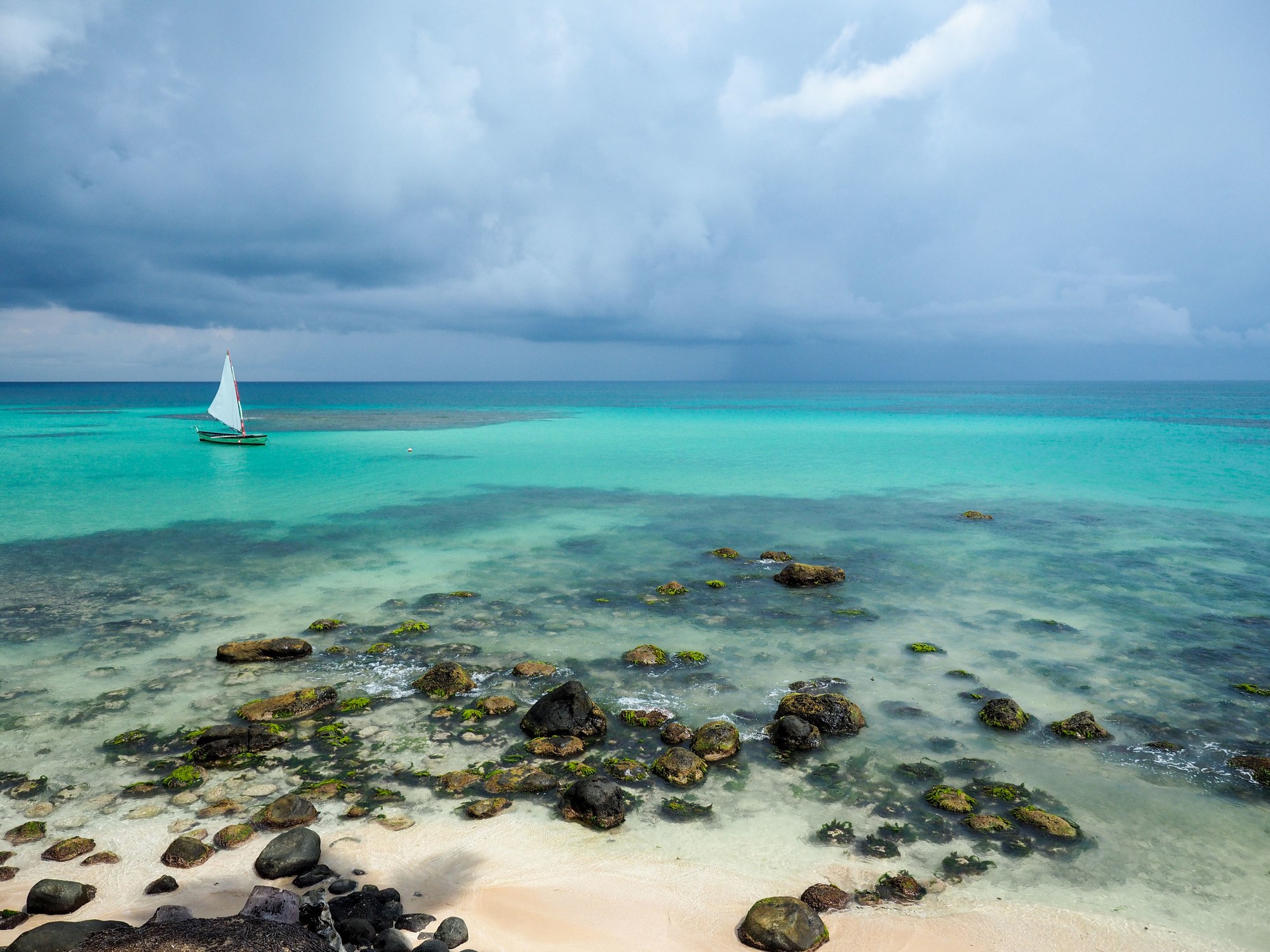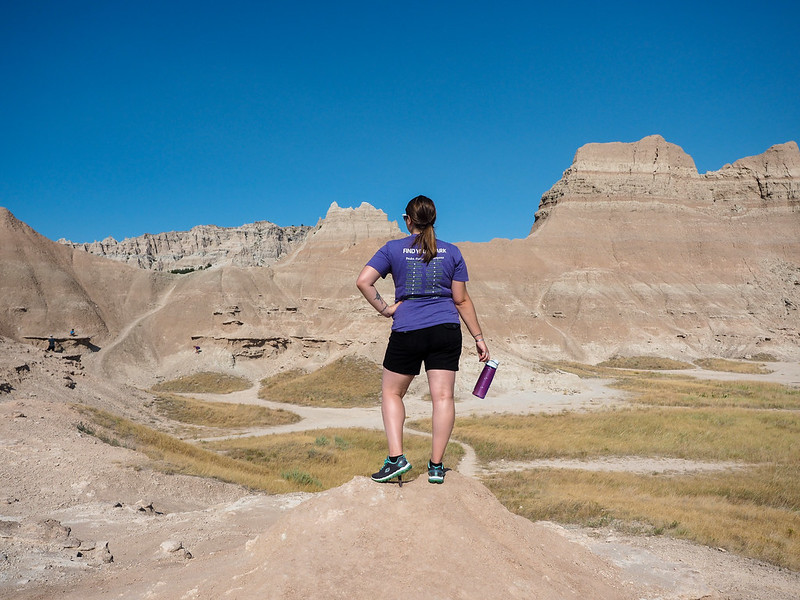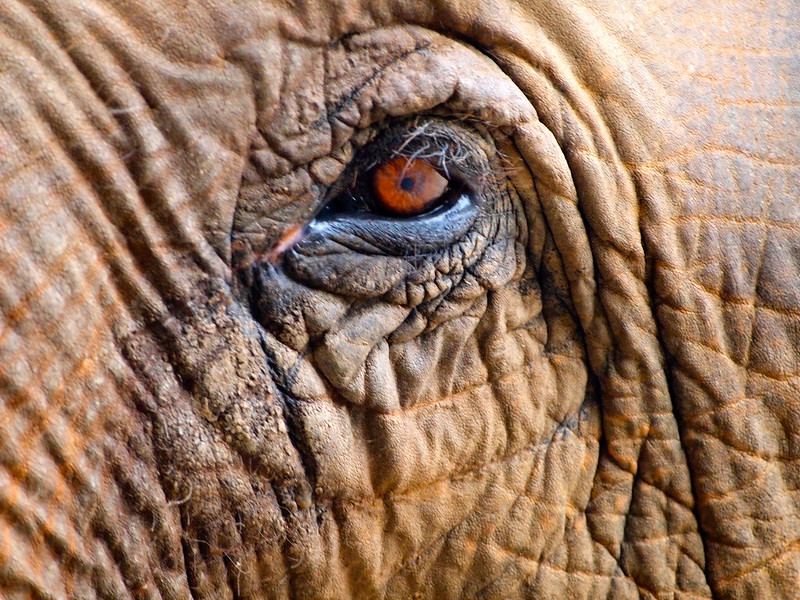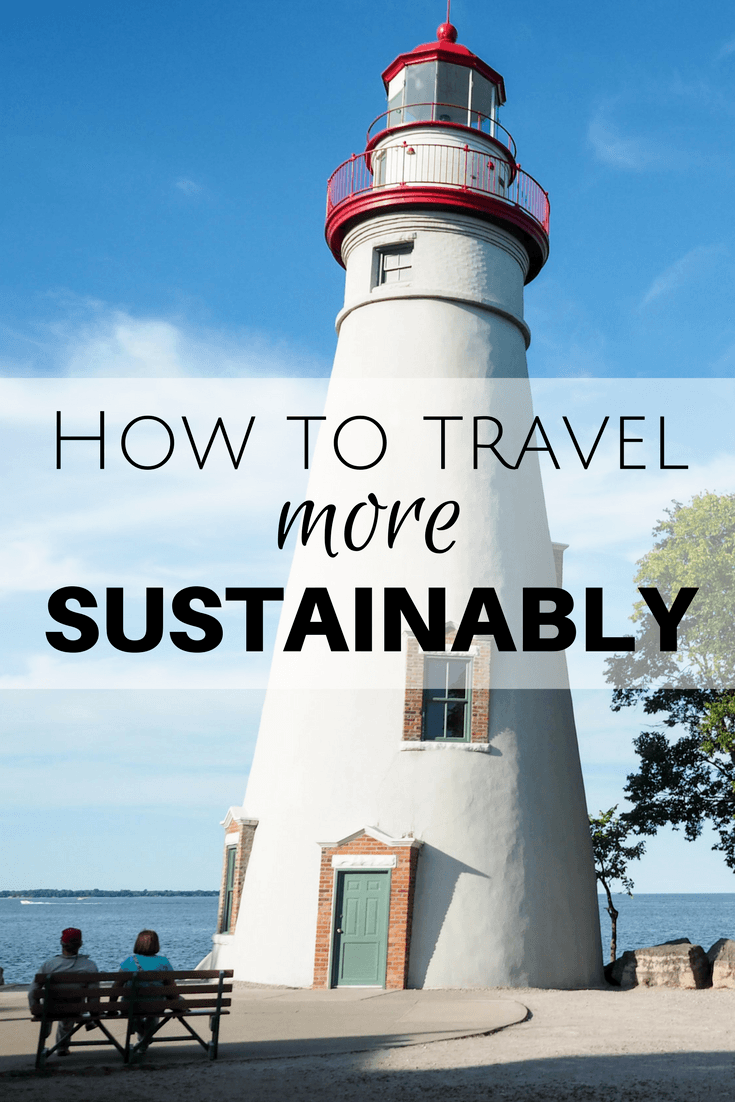Be Kind to Our Planet When Traveling: Is It Too Much to Ask?

I've written before about sustainable tourism and why we should care about traveling more responsibly. But I realize that it's one thing to read about why something is important, and another entirely to actually take action and do something about it.
But it's time that we DO start to think seriously about how we are affecting the planet when traveling. Polar ice is melting. The Great Barrier Reef is bleached and dying. Species are going extinct as their habitats disappear. And let's not even start to talk about man-made attractions that are now feeling the strain of too many tourists visiting.
The internet and social media have indeed opened the world up like never before – but this also means that more people are traveling than ever before.
And with more travelers comes more waste, more pollution, and more strain on local resources and economies. It's more important than ever right now for us to start thinking more seriously about sustainable travel.
Mainstreaming sustainable travel
The World Travel and Tourism Council (WTTC) is on a mission to make sustainable and responsible practices more “mainstream” in the tourism industry.
It shouldn’t be called ‘sustainable tourism' as a niche, but rather just ‘tourism.'
But in order to make sustainable travel the norm, we have to start changing how we approach travel. We have to become more committed to being kind to our planet, and taking responsibility for its health and wellbeing.
Is It Too Much To Ask?
The WTTC has recently launched a new campaign to encourage people to demand sustainability within the travel industry (because, remember, the industry caters to what we as travelers want). The campaign is called “Is It Too Much To Ask?” and asks people to make small pledges related to their travels that really aren't too much to ask.
The theory is that if people commit to even one or two of these pledges and make small lifestyle changes in order to maintain them, collectively we can make a big impact on the planet.
The pledges are as follows:
Pledge 1
I pledge to demand to see the environmental and social policies of the companies with which I book my travels.
My rule of thumb when considering a tour company is to spend time on their website reading their mission statement, and looking for mentions of their sustainable tourism practices. Companies that are dedicated to leaving positive impacts are proud of this and will certainly mention it somewhere.
Pledge 2
I pledge to read up on and understand the local culture in the destination I am traveling to, and promise to respect my hosts, their way of life, and their way of dress by packing appropriately.
This pledge is something that should just happen naturally – do your homework before you travel and make yourself aware of cultural norms that might be different from your own. And then remember that YOU are the guest and the visitor. It might be uncomfortable to wear long pants and a scarf in conservative destinations, but respecting the local culture will not only make you a good ambassador for your country, but will also make your trip more enjoyable since you'll be less likely to receive negative attention. (And can we just stop with the naked selfies altogether? That's really not respectful anywhere.)
Pledge 3
I pledge to limit myself to a 3 minute shower per day in areas where water is scarce.
When you live in a place that has easy and ample access to water, it's easy to forget that this isn't the case everywhere in the world. When traveling in places where water is scarce, take shorter showers, or consider “showering” with a biodegradable Epic Wipe instead.
Pledge 4
I pledge to minimize my use of plastic and to dispose of it appropriately. Never on the street and never in the ocean.

Plastics are one of the biggest pollutants in the world, and are especially impacting our oceans. Plastic bottles litter the ocean floor, sea creatures eat plastic bags thinking they're jelly fish, and even plastic drinking straws can injure animals. Reducing plastic use and recycling the plastic that you do use is perhaps one of the most impactful pledges you can make.
When you travel, travel with a reusable plastic water bottle (try a GRAYL if you're going somewhere with questionable tap water), and skip the straws (or buy reusable metal ones!).
Pledge 5
I pledge to buy local – including food, experiences, and guides.
Sustainable tourism isn't just about the environment – travel also has to be economically beneficial to the locals in order to be sustainable. The more money that stays within a local community, the more positive of an impact it leaves (and the more likely locals will be to want to welcome tourists). Opt for family-run hotels and restaurants instead of large chains, buy local handicrafts when possible, and give your money to tour companies that employ local guides instead of foreign ones.
Pledge 6
I pledge to never take part in activities that will cause harm to animals.

Wildlife tourism is always a tricky subject. Most people love animals, but many aren't aware that some wildlife attractions are actually harmful to the animals. Don't ride elephants or visit tiger temples or participate in dolphin encounters that take place in captivity. Essentially, look for experiences that only have you observing animals in the natural habitats instead of supporting ventures that “train” (i.e. force) animals to perform or entertain you in a way that they never would in the wild.
Pledge 7
I pledge to never visit sites of religious and cultural importance to local people if they do not wish it. If I am allowed to visit these places, I am committed to showing my respect and behaving appropriately.
A good example of this is Uluru in Australia. You technically can still climb to the top of it, but it's a sacred site to the local Aboriginal owners and they ask that people not climb it. Out of respect, you should abide by these wishes – even if it does mean you miss out on an epic Instagram photo. Respecting local wishes is far more important than a cool selfie.
Pledge 8
I pledge to offset the CO2 impact of my holiday.
Travel is inherently harsh on the environment; planes, trains, and automobiles release a lot of CO2 into our atmosphere. And while you can sometimes opt for more eco-friendly transport options, there are some cases where there's just no way around taking a flight or driving somewhere. In these cases, there are ways to help offset your CO2 impact. Sites like Terrapass and Carbonfund can help you calculate and offset your carbon footprint, and some tour companies (like Intrepid Travel) automatically carbon offset their trips as part of their pledge to sustainability at a very minimal extra cost to travelers.
Pledge 9
I pledge to educate myself, my family, and my friends based on my experiences and my knowledge of responsible travel, and to talk to other experienced travelers in an effort to learn more about the world and sustainable best practice.
I do this through posts like this on my blog, but you as a traveler can help, too, by simply telling people you know about what you've learned on your travels. Education is the best way to help make sustainable travel more mainstream.
Pledge 10
I pledge to give feedback to travel providers, to establish demand for sustainable practices and responsible travel, and ask for more sustainable travel options in my recommendations. If a travel provider is not providing me with sustainable options, I will demand to know why and endeavor to make a change.
You may read this and say, “Oh but I'll never really make a difference.” But that's not true! Enough people have spoken up about things like elephant riding that tour companies have removed it from their itineraries. More recently, even big booking sites like Expedia and TripAdvisor have pledged to remove certain exploitative animal encounters from their sites. And they're doing this because people are speaking up and demanding it.
My travel pledges
This campaign doesn't just exist to educate people about sustainable tourism, though. The whole point is for people like you and I to actually take action and change the way we travel.
I'm making three pledges over the next three months, and will be illustrating the things you can do to stick to these pledges on your travels.
The pledges I'll be addressing are:
I'll be doing many of the things I listed above in relation to these pledges, and will be talking about my progress on my social media channels.

How YOU can get involved
And you can get involved, too!
Getting involved is easy: simply head over to the Is It Too Much to Ask? website, read through the pledges, and choose the ones that you want to commit to.
Once you've hit the “Yes – I Pledge” button on the pledges you feel most passionate about, click the “See my pledges” button in the upper right of your screen. Then enter your email address so the WTTC can send you tips and encouragement about your pledges. (And don't forget to confirm your pledges via the first email you'll receive!)
No money is required to make a pledge – this is 100% free. Pledging through the site will just (hopefully) help you be more accountable on your travels.
You can also submit ideas for additional pledges.
But let's not stop there! I want to see and hear about your pledges, too!
At the end of my three months of pledging and traveling more sustainably, I want to write a follow-up post about some of the things I did to be kinder to the planet. And I want to feature YOU and your pledges, too.
Over the next three months, send me your photos illustrating how you're sticking to one of your pledges. I'll share as many as I can in my post!
You can send me photos via email – adangerousbusiness[at]gmail[dot]com – or through messaging me on my Facebook page. Please include your name, where you're from, and a description of your pledge and what you've done to stick to it.
Happy pledging!
So, is it too much to ask to pledge to travel more sustainably? I hope not! Tell me which pledge(s) you'll be committing to in the comments!
Note: This post is brought to you in collaboration with the World Travel and Tourism Council.

Amanda Williams is the award-winning blogger behind A Dangerous Business Travel Blog. She has traveled to more than 60 countries on 6 continents from her home base in Ohio, specializing in experiential and thoughtful travel through the US, Europe, and rest of the world. Amanda only shares tips based on her personal experiences and places she's actually traveled!

















Thank you very much for the sustainable travel tips, I agree it only takes small changes. Be nice if more people would listen.
I’ve made a couple of pledges. It would also be nice if people did a little extra like picking up trash while walking on the beach. The trash issue is fast becoming an uncontrollable one and deserves a more aggressive collective effort.
Totally agree – the beach trash is certainly an issue!
Thanks for your sharing, I will share with my FB friends!
Afguy recently post Sea to Summit Thermolite Reactor Extreme – Sleeping Bag Liner https://www.afguy.com/sea-summit-sleeping-bag-liner/
I completely support this movement! I just made my pledges!
Awesome to hear, Izy! Which pledge did you make?
I have travelled in about 50 countries and I have a principle
“Take nothing but photographs, leave only footprints”
– Best traveller is the one who does not leave any signs of her/his visit. By making sure not to litter one can really make the difference. And absolutely the worst material to leave behind is glass because it will remain in the nature until the next ice age will decimate it.
Plastic is a much bigger problem, only because there’s so much of it everywhere in our daily lives!
I must admit, I have been so confused about the offsetting of my “Co2 footprint”. to me, it was just another way for corporations to make money. Even on the research I have read, it still makes little sense regarding paying that extra amount when I book a flight. I am probably not the only one confused by it.
That said, your other points are very clear.
I am an avid scuba diver. In January this year I was scuba diving off Ko Tao with my girlfriend. While under water i could see little fish eating little pieces of plastic. As I made my way back to the boat, something it me in the face that was gooey and hard. Then I realised it was an empty back of chips. Then another hot my face and another. So I stopped and reached out to grab handfuls of plastic that I stored in my BCD. Now, we were about 1km out from Ko Tao and there were so many tourists on the island. To me, they just did not care! It disgusted me.
We all must do so much more.
Thanks for writing the article.
If you’re going to offset your carbon footprint, there are ways to go about it that do actually help! You just sometimes need to do some research to ensure that your money is actually going somewhere where it will be helpful. (Many of the best CO2 offset programs donate to sustainability programs around the world, and all their projects are listed on their websites – those are my favorite to donate to.)
I kept thinking that the more people travel, the more people will realize how precious of our nature is. But then i saw someone playing bottle skipping at the beach and never reclaim those things they throw away. People will now live long enough to see the consequences they made.
Yes I’ve definitely seen things like that, too. But that means that those of us who do already realize how precious our earth is need to work even harder to make everyone else see it too!
Love your article and happy to see concious travel ideas shared and spread widely.Those are not easy pledges to follow through daily but this is what it takes to follow ones convinctions and always looking to do the best. Thanks!
I think it’s a topic that is definitely worth talking about, especially on a travel blog!